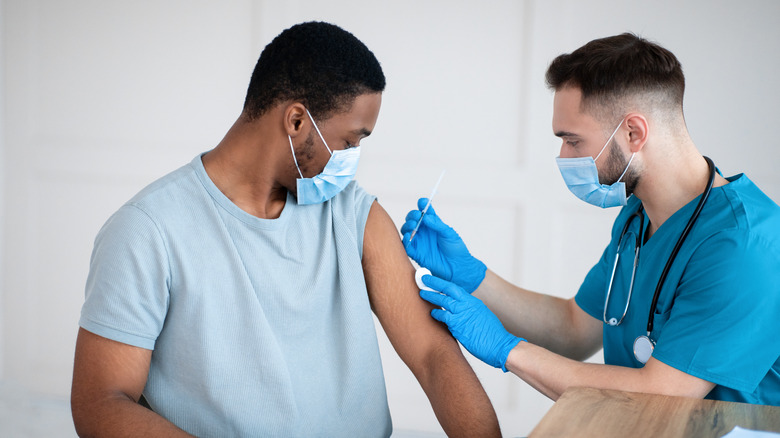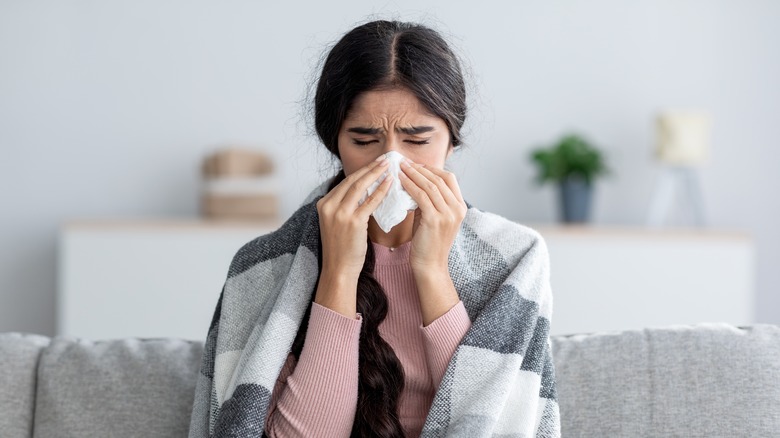Here's When You Should Get Your Next COVID-19 Booster
As the weather gets colder and people spend more time indoors, the risk of contracting COVID-19 increases. That's why health experts are urging Americans to get a booster shot of the Omicron-specific COVID-19 vaccine before Halloween (via WebMD). Ideally, people should get vaccinated between mid-September and mid-October, but getting the vaccine no later than the end of October should still offer some protection against the virus. The booster shot will help boost immunity levels ahead of a potential surge in infections this winter.
Ashish Jha, the White House COVID-19 response coordinator, told ABC News that getting the booster shot is critical for protecting yourself and others from the virus. "If you go get these vaccines, you actually can influence what happens," he said. "There is nothing fated about what's going to happen. If a large proportion of Americans go out and get these vaccines, it will have a significant beneficial effect on keeping infections low." If you haven't already gotten your booster shot, be sure to schedule an appointment with your doctor or health care provider soon.
How to protect yourself against COVID-19
If you can't get your booster shot right away or at all, there are still many ways you can avoid contracting COVID-19 this fall or winter. Wash your hands often with soap and water for at least 20 seconds, or use an alcohol-based hand sanitizer if soap and water are not available (via Mayo Clinic). Avoid close contact with people who are sick, and clean and disinfect surfaces you touch often. Cover your mouth and nose with a tissue when you cough or sneeze, or use the inside of your elbow. Finally, if you are sick, stay home from work or school and avoid close contact with other people.
In addition, there are several things you can do to protect yourself if you are at increased risk for severe illness from COVID-19 (via The Centers for Disease Control and Prevention). Stay informed and know your risks by reputable websites for updates on COVID-19 and its risk factors. Talk to your healthcare provider about getting a flu shot and other vaccines to keep your immune system strong. Avoid large crowds, especially if they are indoors, and wear a mask inside if you need to be out and about.


